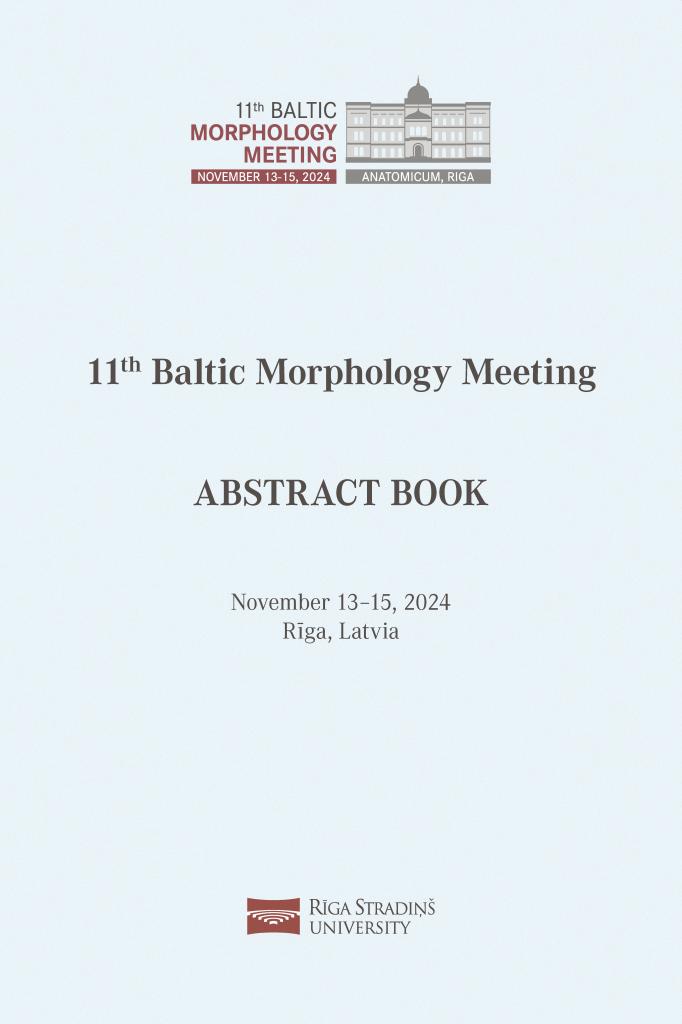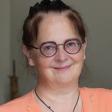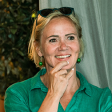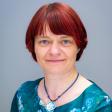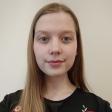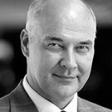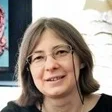11th Baltic Morphology Meeting
13–15 November 2024
Institute of Anatomy and Anthropology (Anatomicum),
Rīga Stradiņš University (9 Kronvalda bulvāris, Rīga, LV-1010)
On behalf of the morphologists of Rīga Stradiņš University (RSU), it is our great pleasure to invite you to the 11th International Baltic Morphology Meeting (11th BM) which will be held in Rīga, Latvia, on 13–15 November 2024.
The 11th BM is a two-day event dedicated to morphology including anatomy, anthropology, histology, embryology, histopathology/pathology with sessions covering a wide spectrum of topics in morphology under the "one health in a healthy body" umbrella. Students and anyone else who is interested to attend will be able to access the conference online. Parallel to the 11th BM, we will also be hosting a small sponsored exhibition! The conference will open on the evening of 13 November, and the gala dinner will take place on 14 November.
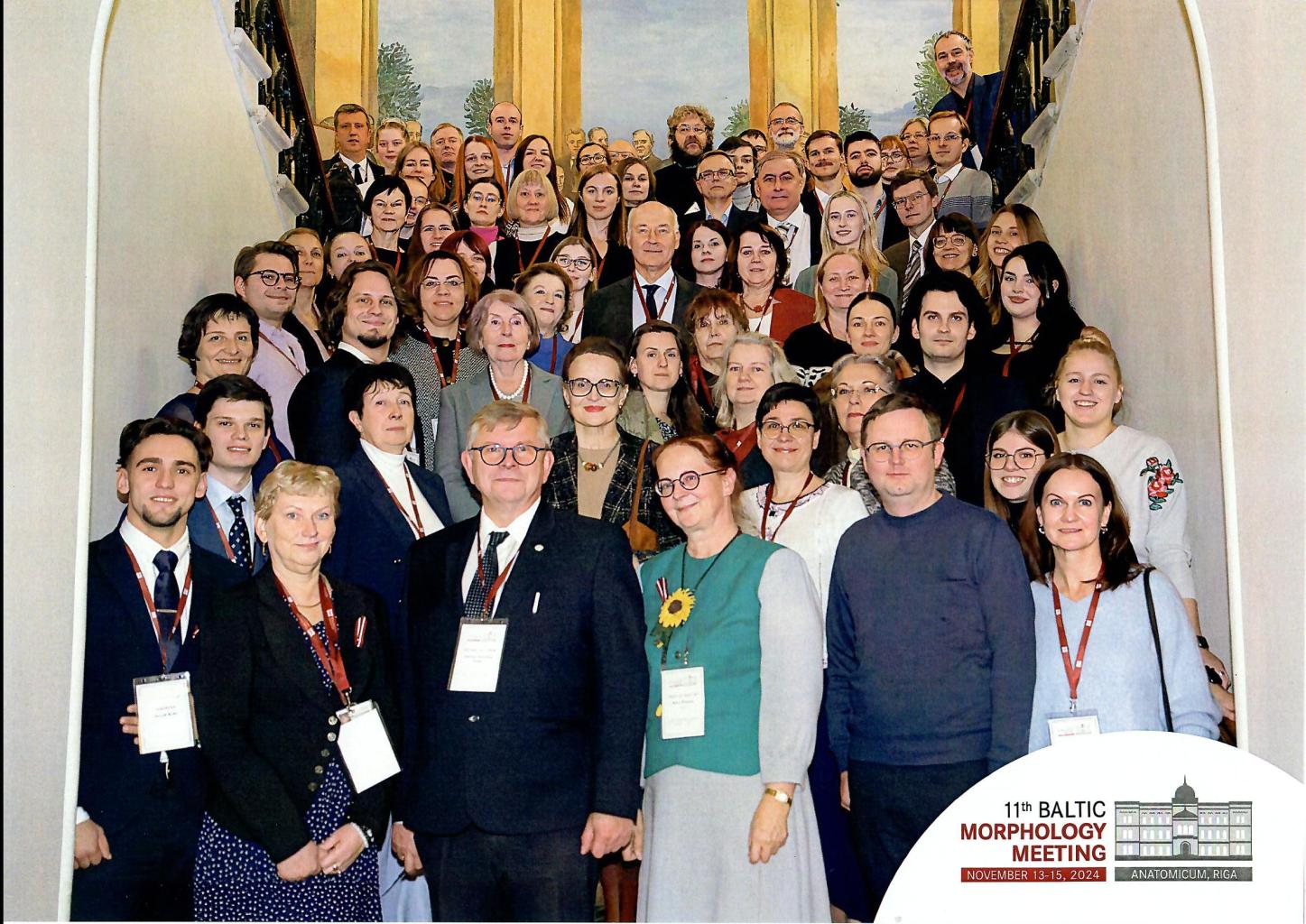
Important Dates
- Abstract submission deadline: 15 September 2024
- Registration deadline: 25 October 2024
- Invited Speakers
Dr Andrejs Ivanovs
MD MSc PhD MRCP(UK) FRCPath
Department of Haematology, Edinburgh Cancer Centre, United Kingdom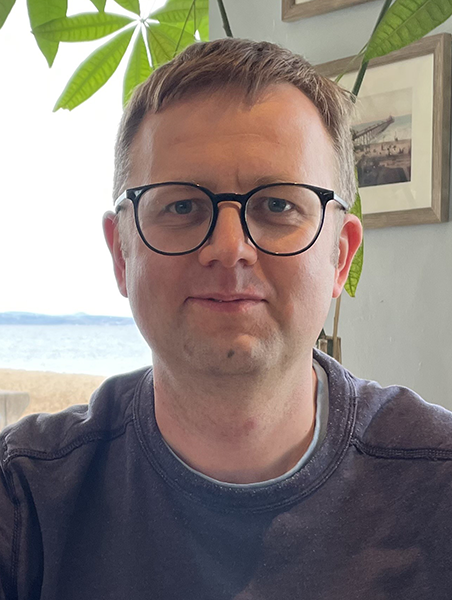
Dr Andrejs Ivanovs is a Consultant Haematologist at the Edinburgh Cancer Centre, a tertiary care oncology centre in Scotland. Dr Ivanovs specialises in lymphoid malignancies and cellular immunotherapy. He graduated with distinction from Rīga Stradiņš University in 2008. The same year, he was awarded a competitive Medical Research Council (UK) PhD studentship to undertake research into haematopoietic stem cell biology at the University of Edinburgh. In 2012, Dr Ivanovs was awarded a Medical Research Council (UK) Centenary Early Career Award to fund his postdoctoral research. At the same time, Dr Ivanovs continued his clinical training. In 2017, he completed his training in Internal Medicine in Edinburgh and became a Member of the Royal College of Physicians of the United Kingdom by examination. Between 2017 and 2022, Dr Ivanovs was in Higher Specialist Training in Haematology at the Beatson West of Scotland Cancer Centre and the Queen Elizabeth University Hospital in Glasgow. In 2021, Dr Ivanovs became a Fellow of the Royal College of Pathologists of the United Kingdom by examination.
Prof. Dainius H. Pauza
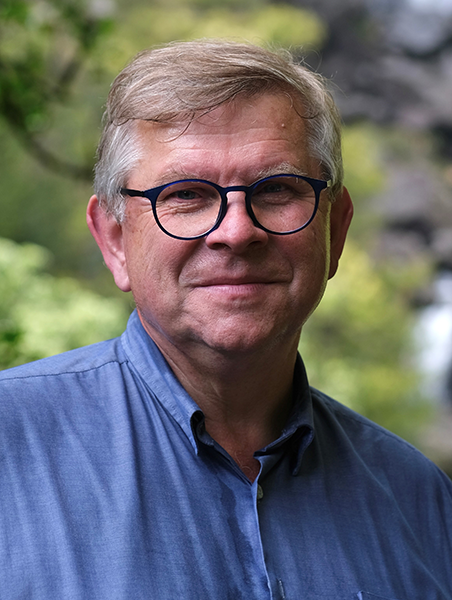
Dainius H. Pauza was born on 8 July 1962 in Kaunas (Lithuania). In 1985, he graduated from Vilnius University and obtained a speciality as a biologist following a successful defence of a master's thesis in mammal zoology. In 1992, he obtained a doctorate degree (PhD) from Kaunas University of Medicine. In 1995, he officiated as an associate professor, and from 2002 as full professor in the Department of Anatomy at Kaunas University of Medicine. He is a regular member of the Lithuanian Society of Morphologists, the American Association of Anatomists, the International Brain Research Organization, and the German Society of Anatomists, and 10 years served as a member of the Research Council of Lithuania.
- Read more
In 2013, Prof. Pauza was elected to the position of Chairman of the Research Council of Lithuania for a five-year tenure. Prof. Pauza was a holder of 11 grants from the Lithuanian State Science and State Foundation, the Research Council of Lithuania and one from the European Social Foundation. His interests and research areas are Cardiac and Vascular Biology, Developmental Neurobiology, Neuroanatomy, and Autonomic Neuroscience. Prof. Pauza has long-term work experience in research in gross anatomical, microscopic structural, histochemical, immunohistochemical, transmission electron microscope and immunocytochemical electron microscope investigations of the intrinsic cardiac nervous system in humans and in a range of animal species. Prof. Pauza has a broad practice in performing intracellular ionophoretic staining and laser scanning microscopy of autonomic neural cells of the heart and gastrointestinal tract in animal models and conducting long-term experiments on the impact of autonomic innervation of cardiac physiology in animal models. The author and co-author of more than 60 scientific papers in peer-reviewed international journals.
Prof. Michał Polguj
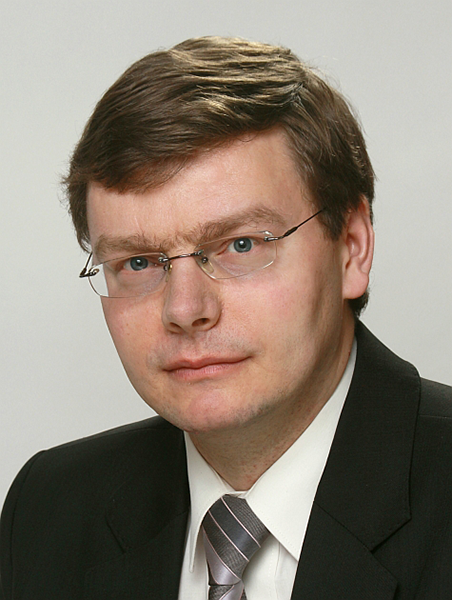
Prof. dr. hab. Michał Polguj (MD, PhD) – full professor working as the Head of the Chair of Anatomy and Histology and Head of the Department of Normal and Clinical Anatomy Medical University of Lodz, Poland. Member of Main Management Board of the Polish Anatomical Society. Member of Board of European Association of Clinical Anatomy.
Member of International Advisory Board of Surgical and Radiologic Anatomy, member of Editorial Advisory Board of Folia Morphologica, member of Editorial Board of Clinical Anatomy, member of Editorial Board (section Gross and clinical anatomy – Associate Editor) of European Journal of Anatomy.
His scientific interests mainly concern anthropology, angiology, musculoskeletal and nervous systems with a special focus on particular approach to their application in clinical practice.
Prof. Pavlo Fedirko
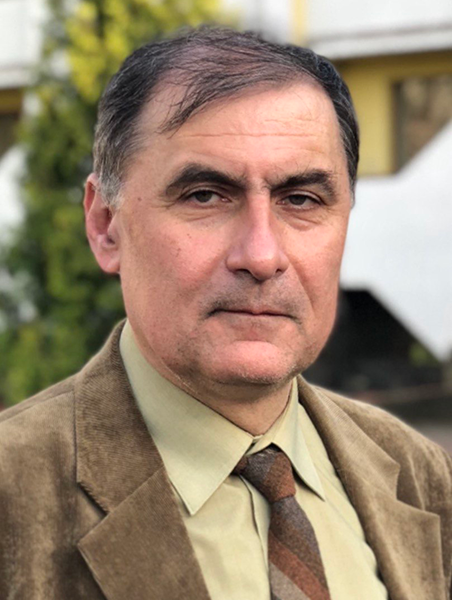
Professor Pavlo Fedirko has studied medicine, subsequently specializing in ophthalmology, biochemistry and physiology. He received the degree of Doctor of Philosophy in 1991 (Research Institute of Eye Diseases and Tissue Therapy named after Acad. V. Filatov, Odessa) for research in the field of biochemistry of the eye and conservative methods of glaucoma treatment. Since 1991, his area of interest is radiation ophthalmology, epidemiology of radiation damage, radiation medicine.
- Read more
The title of Dr. habil. med. received in 2003 at the Institute of Occupational Medicine of the National Academy of Medical Sciences of Ukraine, Kyiv, the title of professor in 2014.
He developed and is a Head of the Lab of Radiation Induced Eye Diseases of the Institute of Radiation Hygiene and Epidemiology. Since 2017, P. Fedirko has been Director at the Institute of Radiation Hygiene and Epidemiology of the National Research Center of Radiation Medicine of the National Academy of Medical Sciences of Ukraine.
P. Fedirko works in the interdisciplinary field of research in radiation epidemiology of non-infectious diseases and radiation medicine. Also research in the field of dosimetry of external and internal radiation, retrospective dosimetry, radiochemistry is conducted under his guidance. Professor has participated in several international projects, including Ukrainian-American Chornobyl ocular studies (UACOS). Additionally, P. Fedirko has discovered several previously unknown effects of radiation exposure, described two ophthalmological syndromes, revealed a radiation-induced dose dependent decrease in accommodation capacity and dose dependent disorders of permanent retinal potential generation in irradiated persons. He still continues to work on the peculiarities of the course in age-dependent diseases of populations exposed to radiation.
Andreas Winkelmann
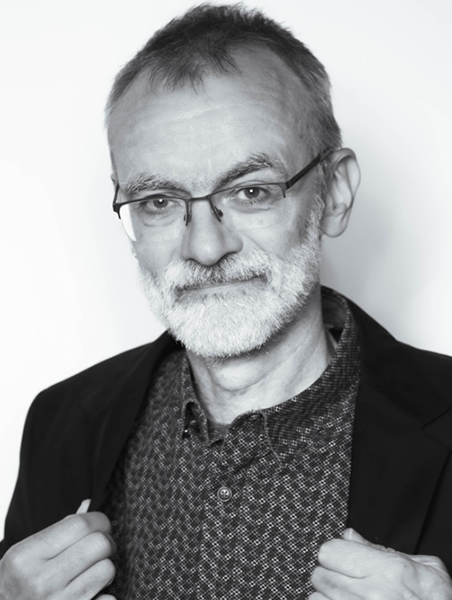
Andreas Winkelmann is a medical doctor by training and holds an additional MSc. degree in medical anthropology. He has taught anatomy in Homburg (Saar), Basel, and Berlin and since 2015 at Brandenburg Medical School in Neuruppin, Germany. He has published on educational questions and on the history and ethics of anatomy. Since 2014, he has been chairing the committee for ethics and medical humanities of the International Federation of Associations of Anatomists. From 2010 to 2013 he was heading the Charité Human Remains Project in Berlin, which conducted research on the provenance of human remains from Namibia, Australia, New Zealand and Paraguay in colonial collections and organised several repatriations.
Prof. Ojārs Spārītis
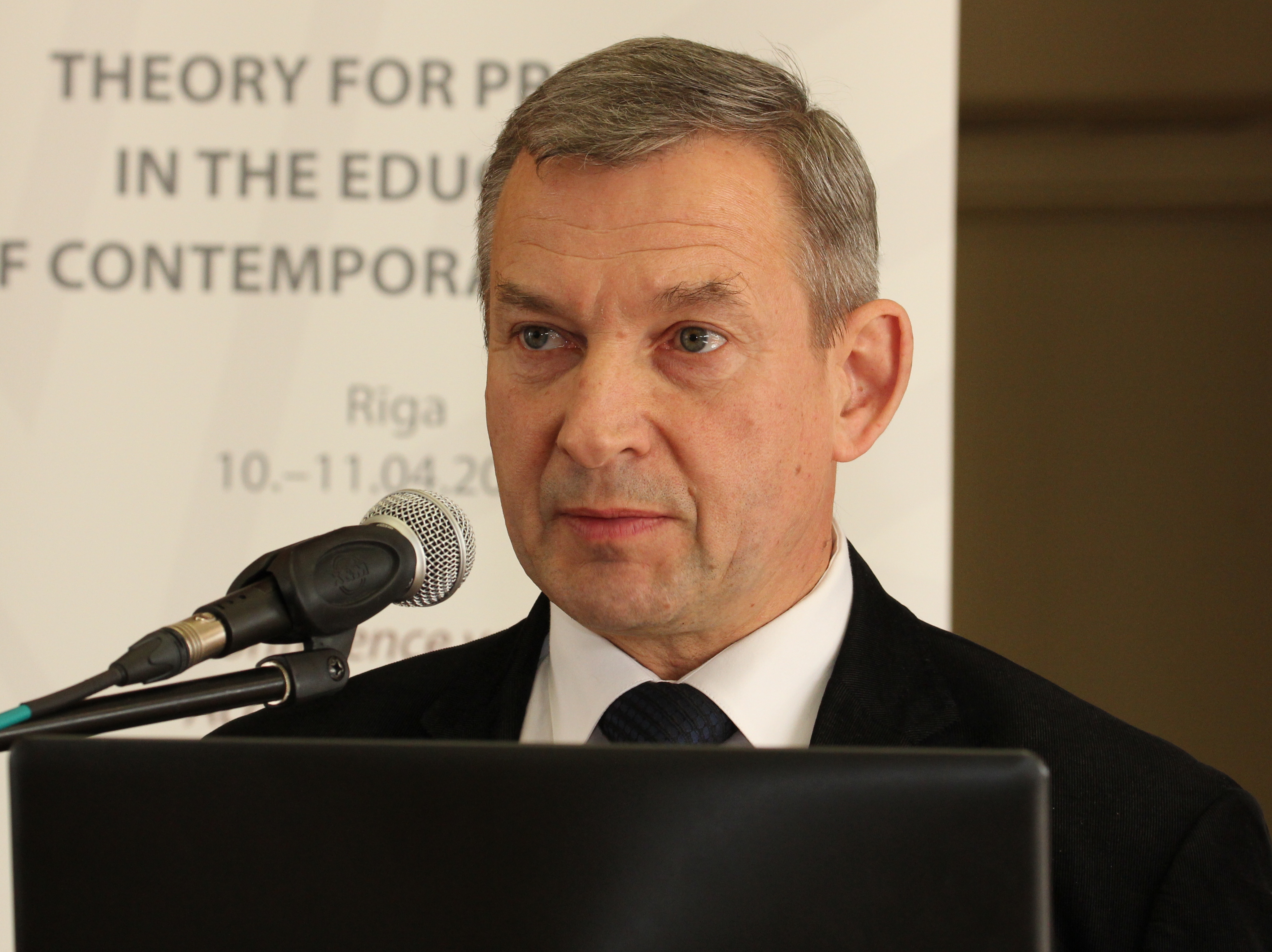
Ojārs Spārītis (b.1955), PhD, is a professor of art history at the Latvian Academy of Arts and the vice-president of the Latvian Academy of Sciences (president 2012-2020). His specialisation is the history and theory of the Renaissance and investigations into aspects of the Reformation in former Livonia. He is an expert in the protection and restoration of cultural monuments.
Prof. Ivan Varga
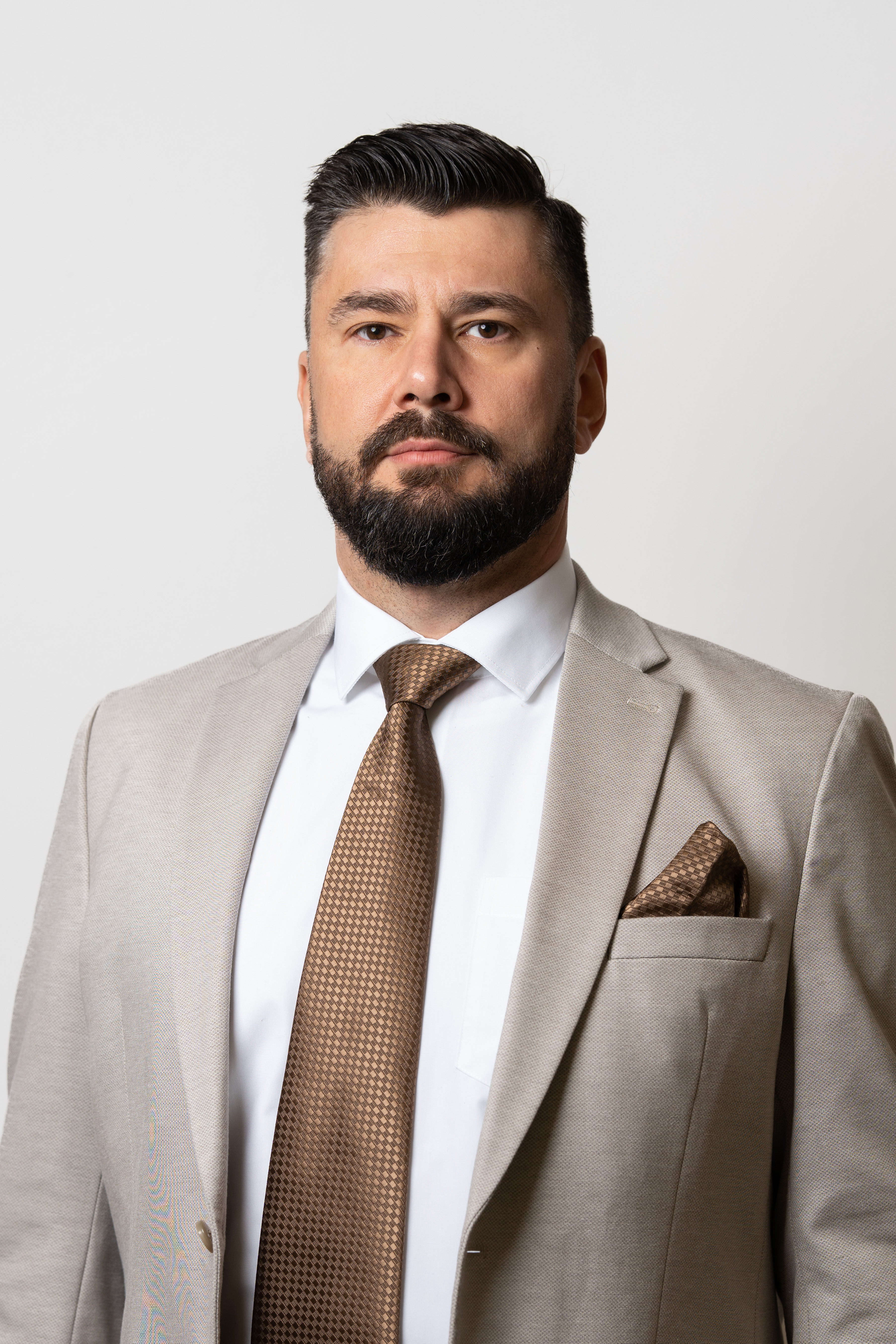
Prof. Ivan Varga holds a PhD in Anthropology, Pathological Anatomy, and Forensic Medicine, both from Comenius University in Bratislava. In 2018, he reached the Full Professor degree in Anatomy, Histology, and Embryology at Charles University in Prague. He is currently the vice-dean for science, research, and PhD studies at the Faculty of Medicine, Comenius University in Bratislava and the head of the Institute of Histology and Embryology at the same university. His research interests include the development and microscopic anatomy of the human lymphoid and female reproductive organs, ultrastructural characterisation of the human mesenchymal stem cells and their application in regenerative medicine, reproductive biology, and new trends in histology and embryology teaching.
- Read more
He has published seven textbooks, three monographies and more than 130 scientific papers published in journals with the Impact Factor as an author/co-author. He has contributed to chapters in Nerves and Nerve Injuries (Elsevier, 2015) and Bergman's Comprehensive Encyclopedia of Human Anatomic Variation (John Wiley & Sons, 2016). His textbook Memorix Histology received the Jaroslav Jirsa Price (the best textbook according to the Charles University in Prague) and was translated into English and Polish. His scientific articles have been cited more than 1500 times in SCOPUS or Web of Science databases (Hirsch index = 21).
Prof. Varga has received excellence awards and was the president of the 7th International Symposium of Clinical and Applied Anatomy, which took place in Bratislava. He is an Honorary Member of the Asociación Argentina de Anatomía Clínica, the coordinator of the Federative International Programme for Anatomical Terminology (FIPAT) for Histological Terminology of International Federation of Association of Anatomists (IFAA), a delegate of the International Committee of Symposia on Clinical and Applied Anatomy, a delegate of the International Committee of Symposia on Morphological Sciences, and a member of the advisory board for the 7th and 8th editions of the Netter Atlas of Human Anatomy . He is also a member of the editorial boards of the journals Clinical Anatomy (Wiley), Medicina Kaunas (MDPI), the Journal of Clinical and Experimental Obstetrics & Gynecology (IMR Press), and Revista Argentina Anatomía Cliníca. Currently, Prof. Varga is a guest editor of a special research topic in the journal Frontiers in Cell and Developmental Biology entitled “Cellular Micro-Environment of the Endometrium: Reproduction, Embryo Implantation, and Placentation - From Bench to Bedside and Beyond to Tissue Engineering”.
Prof. Selma Yılmazer
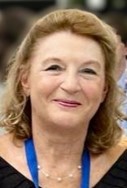
Selma Yılmazer, Professor, PhD, represents the Istanbul Halic University, Faculty of Medicine, Department of Medical Biology, Istanbul, Turkey.
In 1979 she got her PhD degree from the Istanbul University, Cerrahpasa Faculty of Medicine. Department of Histology and Embryology. Between 1974 and 1983 she worked as research and teaching assistant at the same Department. In 1976, she worked as a visiting assistant at the Hiroshima School of Medicine Second Anatomy Department, Hiroshima, Japan.
- Read more
In 1985, Professor Yılmazer became Associate Professor at Cerrahpasa Faculty of Medicine, Department of Histology and Embryology. Appointed as the Head of the Medical Biology Department. In 1992, she became Full Professor at the same Faculty.
In 1987, she worked at the Royal Post Graduate School of Medicine Department of Histochemistry by Professor Julia Polak, London, UK.
In 1990 and 1992, she worked at the National Heart and Lung Institute, Department of Immunology and Allergy as a visiting researcher, London, UK. In 1995 and 2000, she worked at McGill University, Meakins-Christie Laboratories, Montreal, Canada.
In 2000 Professor Yılmazer established the Brain and Neurodegenerative Disorders Research Unit at Cerahpaşa Faculty of Medicine supported with Turkish Scientific and Technological Research Council grant. She served as the Group Leader and Head of Laboratory until the end of 2017.
She also served as president of the Turkish Electron Microscopy Society between 2011 and 2015.
Dr Yılmazer focuses on molecular mechanisms of vitamin D, in molecular aspects of neurodegeneration, Alzheimer’s disease and Parkinson’s disease.
Programme & abstract book
Instructions for authors
Overall requirements
The Organising Committee of the 11th Baltic Morphology Meeting XI recommends you use our templates for oral and poster presentations.
The evaluated best 5 oral and poster presentation of young scientists will be awarded.
- Oral presentations
- All oral presentations must be delivered in English.
- Presentations must be created in Microsoft Office Powerpoint *.ppt or *.pptx format. Presenters take full responsibility for the presentation quality and file format.
- The first slide of the presentation should include the Title and Authors. The presentation should follow the same structure as the abstract.
- The presentation session coordinator has the right to interrupt any report or discussion after the given time has elapsed.
- Only one author can be the presenter (Active participant) and is obliged to participate in the discussion. Other co-authors (Passive participants) can also take part in the debate.
- Poster presentations
- The poster presentation will be as a poster stand.
- The poster must be mounted on November 14 in the morning at 8:30 a.m. and removed on November 15 at 5:30 p.m.
- Materials will be provided to attach your poster on the board.
- It is recommended that at least one of authors stands in front of poster board for the discussion with the Evaluation Committee/colleagues during poster session (and coffee breaks)
The participant is responsible for printing the poster.
- Poster size A1 (594 mm W x 841 mm H), portrait.
- NB! Make sure that images are of good quality, and remember that on the poster, they will look bigger than on the computer.
Registration Fee
General: 250 €
PhD students: 100 € (certification required)
Banquet fee: 70 € /person
The fee covers:
- 4 coffee breaks & 2 lunches
- Certificate of Attendance
- Access to the abstract book
- Programme
- Attendance
- Welcome reception
Registration and Payments
Full payment of fees is required prior to the meeting. Payments may only be made by bank transfer.
After registering, Exordo creates an invoice. This invoice or/and reference number should be noted in your bank transfer order. The payment should be processed within 10 calendar days. Do not process the payment without receiving an invoice beforehand.
Recipient
Rīgas Stradiņa universitāte
Reg. No. LV90000013771
Bank: Swedbank
SWIFT: HABALV22
Multicurrency Account No.: LV02HABA0551000376050
Please indicate the invoice and/or reference number in your bank payment order.
NB: If you do not receive an email message after completing registration, please check your junk/spam folders.
Limited number of travel grants are available for attendees from non-EU countries. Scientific presentation is mandatory. Applications should be written in free style and travel grants are allocated on a "first come, first served" basis.
Meeting Venue
Institute of Anatomy and Anthropology, Rīga Stradiņš University
9 Kronvalda bulvāris, Rīga LV-1010, Latvia
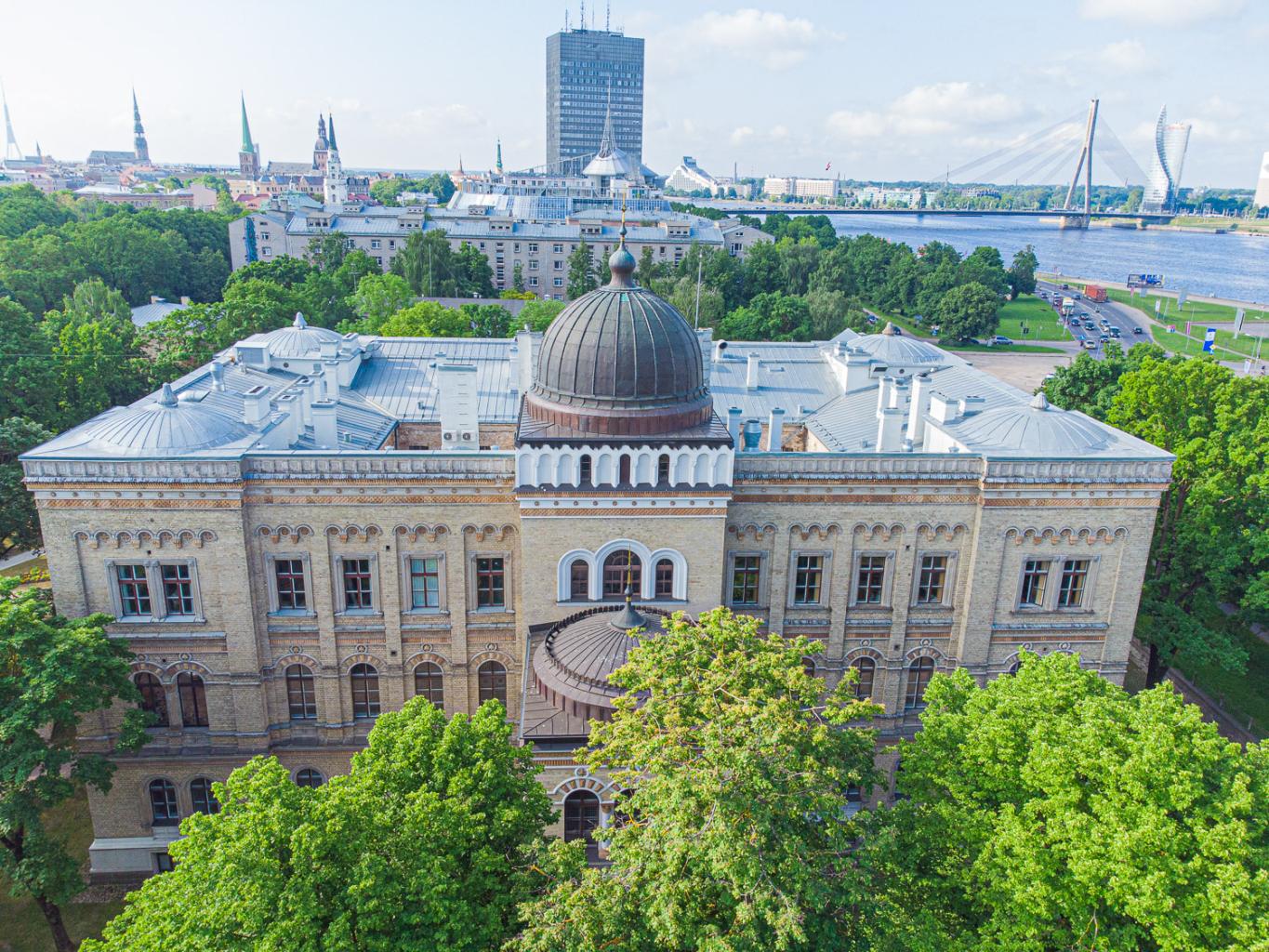
Gala Dinner
Thursday, 14 November 2024
Gala dinner ticket: 70 €
Venue info coming soon.
Accommodation
Participants are requested to book hotel accommodation themselves.
The University and Rīga
- About RSU
- About Rīga
Latvian Song and Dance Festival 2023
The BM teams
- Organising Committee
Full member of the Latvian Academy of Sciences (2020) and Professor (1998) at Rīga Stradiņš University (RSU).
- More
Graduated from Rīga Medical Institute (presently RSU) in 1986. Afterwards she became a clinical ordinator in Paediatrics, later a PhD student in the same field. Assisstant in Department of Histology since 1991 and Assistant Professor and Head of the Department of Histology in Riga Medical Academy since 1994. Underwent qualification in Lund and Umeo Universities, Sweden and at the Garvan Institute of Medical research, Sydney, Australia. Professor since 1998. Head of the Department of Anatomy and Histology of Medical Faculty (1998–2002) and Resident Section of the Institute of Postgraduated Medical Education at the University of Latvia (2000–2003). Professor and Director of the Institute of Anatomy and Anthropology at RSU since 2001. Head of the Department of Embryology (2002–2008), and Department of Morphology at RSU since 2009.
The author of more than 130 Scopus and more than 800 peer-reviewed scientific journal publications, nine monographies; more than four hundred presentations in scientific meetings; supervisor of 30 successfully defended PhD thesis. Awards of RSU and other Universities, students, Latvian Academy of Sciences, Latvian Agricultural Ministry and Cross of Recognition (Fr: Croix de la Reconnaissance)/officer of the Cross of Recognition awarded by the President of state. Main field of interests covers developmental biology, Histology, Histopathology and morphological diagnostic methods.
Experienced project manager with a demonstrated history of working in the event industry.
- More
Līga currently works in the RSU Communications Department and her responsibility areas cover the organisation of international scientific and practical conferences and events. Līga's main tasks are to coordinate the 11th International Baltic Morphology Meeting project and to assist the organising and scientific committees.
Human Anatomy Tutor and Coordinator of the Study (Anatomy) Division at the Department of Morphology of the Institute of Anatomy and Anthropology at Rīga Stradiņš University.
- More
Editorial Board member of the Journal of International Scientific Publications: Educational Alternatives. Experience and research directions comprise Human Anatomy, Physical Anthropology, and 3D Printing.
Researcher at the Institute of Anatomy and Anthropology, assistant professor of the Department of Morphology and head of the Laboratory of Morphology, Rīga Stradiņš University.
- More
Asst. prof. Junga is also a member of Rīga Stradiņš University Ethics Committee and Research Ethics Committee.
Daiga Enkuzena has been holding the office manager's position at the Institute of Anatomy and Anthropology since 2018.
- More
At the Institute of Anatomy and Anthropology, she helped organize the Student International Conference of Morphology Sciences six times. In 2004, she graduated from Rīga Teacher Training and Educational Management Academy (RPIVA) with a higher professional education in the programme ’Head of the office - referendum’.
Dārta Cīrule joined the Department of Morphology as a study process coordinator for the last year.
- More
At the Institute of Anatomy and Anthropology, she helped organize the Student International Conference of Morphology Sciences in 2023. She is simultaneously studying Occupational Therapy at Rīga Stradiņš University.
- Scientific Committee
Full member of the Latvian Academy of Sciences (2020) and Professor (1998) at Rīga Stradiņš University (RSU).
- More
Graduated from Rīga Medical Institute (presently RSU) in 1986. Afterwards she became a clinical ordinator in Paediatrics, later a PhD student in the same field. Assisstant in Department of Histology since 1991 and Assistant Professor and Head of the Department of Histology in Riga Medical Academy since 1994. Underwent qualification in Lund and Umeo Universities, Sweden and at the Garvan Institute of Medical research, Sydney, Australia. Professor since 1998. Head of the Department of Anatomy and Histology of Medical Faculty (1998–2002) and Resident Section of the Institute of Postgraduated Medical Education at the University of Latvia (2000–2003). Professor and Director of the Institute of Anatomy and Anthropology at RSU since 2001. Head of the Department of Embryology (2002–2008), and Department of Morphology at RSU since 2009.
The author of more than 130 Scopus and more than 800 peer-reviewed scientific journal publications, nine monographies; more than four hundred presentations in scientific meetings; supervisor of 30 successfully defended PhD thesis. Awards of RSU and other Universities, students, Latvian Academy of Sciences, Latvian Agricultural Ministry and Cross of Recognition (Fr: Croix de la Reconnaissance)/officer of the Cross of Recognition awarded by the President of state. Main field of interests covers developmental biology, Histology, Histopathology and morphological diagnostic methods.
MD and professor at RSU Institute of Anatomy and Anthropology.
- More
Main research areas: biocompatibility of biomaterials, medical biomechanics, physical anthropology, especially auxology, medical law and history.
Prof. Vētra has participated in collaboration projects in the development of innovative rehabilitation technologies.
Human Anatomy Tutor and Coordinator of the Study (Anatomy) Division at the Department of Morphology of the Institute of Anatomy and Anthropology at Rīga Stradiņš University.
- More
Editorial Board member of the Journal of International Scientific Publications: Educational Alternatives. Experience and research directions comprise Human Anatomy, Physical Anthropology, and 3D Printing.
Dr Andrejs Ivanovs is a Consultant Haematologist at the Edinburgh Cancer Centre, a tertiary care oncology centre in Scotland. Dr Ivanovs is specialising in lymphoid malignancies and cellular immunotherapy.
- More
He graduated with distinction from Rīga Stradiņš University in 2008. The same year, he was awarded a competitive Medical Research Council (UK) PhD studentship to undertake research into haematopoietic stem cell (HSC) biology at the University of Edinburgh. Dr Ivanovs studied the development of human HSCs and for the first time described the spatio-temporal distribution of HSCs in the early human embryo and their high regenerative potential. In 2012, Dr Ivanovs was awarded a Medical Research Council (UK) Centenary Early Career Award to fund his postdoctoral research to identify the immunophenotype of the earliest human HSCs. At the same time, Dr Ivanovs continued his clinical training. In 2017, he completed his training in Internal Medicine in Edinburgh and became a Member of the Royal College of Physicians of the United Kingdom by examination. Between 2017 and 2022, Dr Ivanovs was in Higher Specialist Training in Haematology at the Beatson West of Scotland Cancer Centre and the Queen Elizabeth University Hospital in Glasgow. In 2021, Dr Ivanovs became a Fellow of the Royal College of Pathologists of the United Kingdom by examination.
Professor Ilze Štrumfa is an outstanding medical lecturer, actively involved in the research in pathology.
- More
She graduated from the Medical Academy of Latvia with distinction in 1998, underwent board certification in pathology in 2001, and received a PhD degree in 2005. Currently, she is a professor and head of the Department of Pathology, Rīga Stradiņš University (RSU), Latvia. Her 14 years of teaching experience have culminated with the RSU "Lecturer of the Year" Annual Award (2018) given to the most distinguished teachers. As the head of the Department of Pathology, she is leading a skilled, motivated team of university teachers and scientists that have won awards such as Best Academic Unit (2011), Best PhD Student (2012), and Best Digital Junior Teacher (2016).
Prof. Štrumfa is an author/co-author of more than 100 peer-reviewed journal articles, 16 chapters in scientific monographs and medical textbooks as well as the editor of 3 monographs. She has been acting as the leading expert in several European and national research projects devoted to the development of diagnostic technologies, laboratory training in research, cancer pathology and tumour microenvironment. Her main research interests include morphological and molecular diagnostics and prognostic assessment of tumours as well as digital pathology and other innovations in pathology and cytology.
